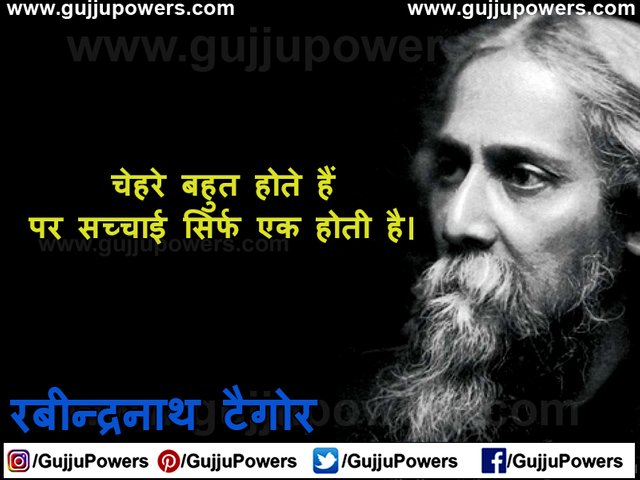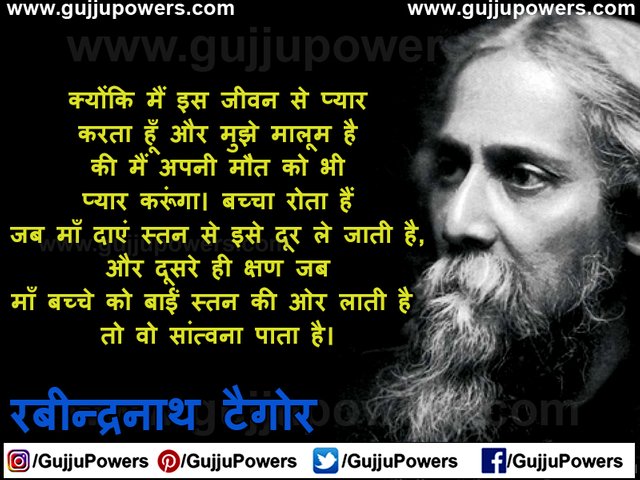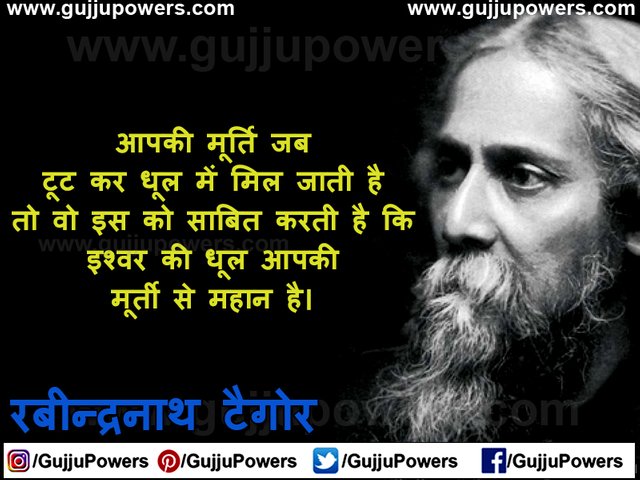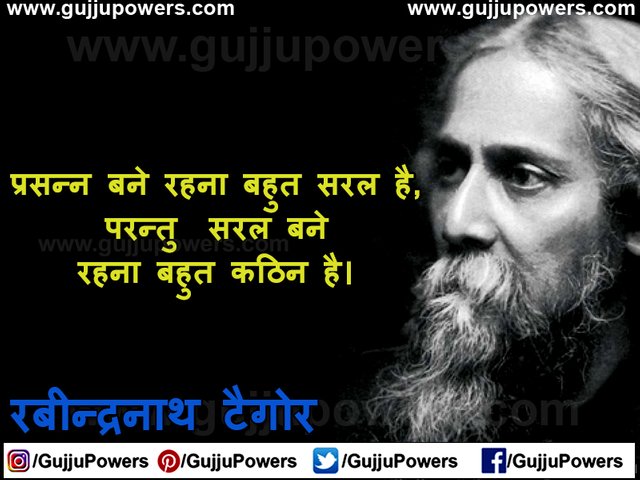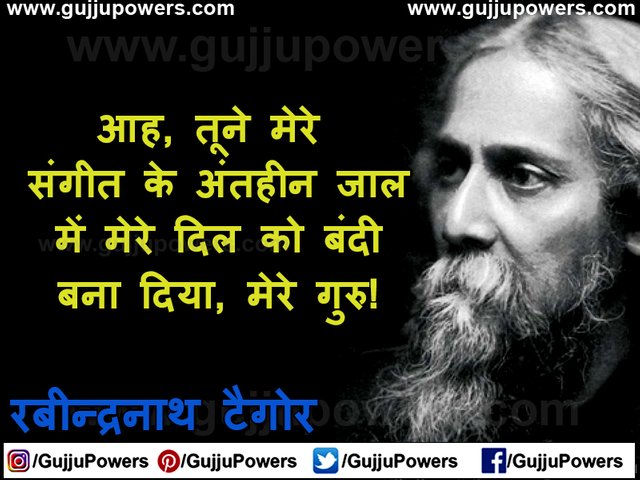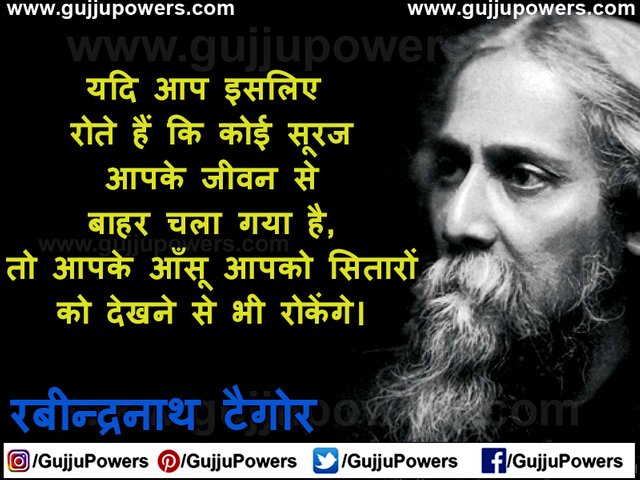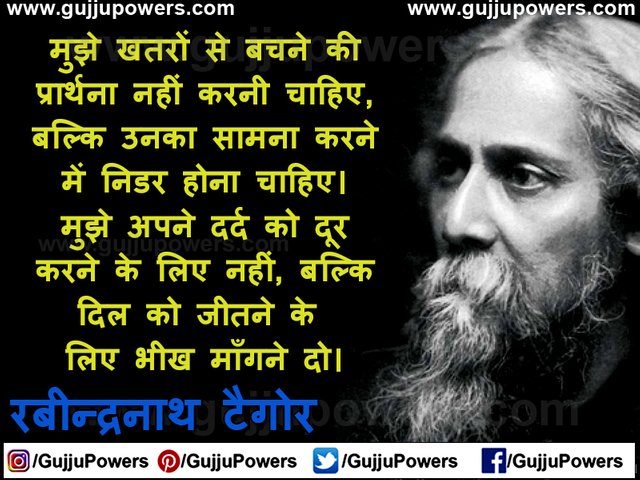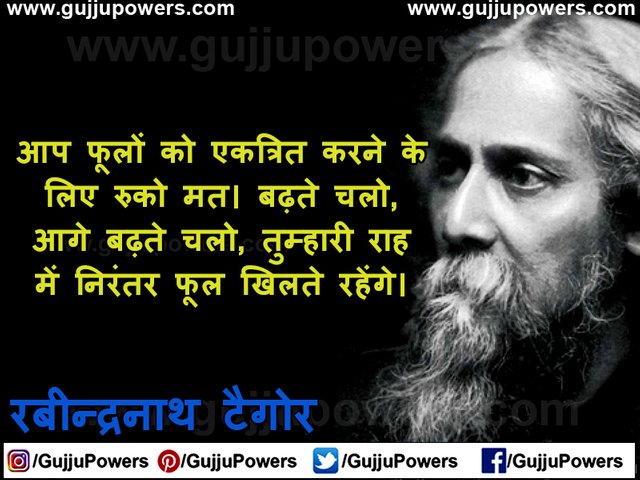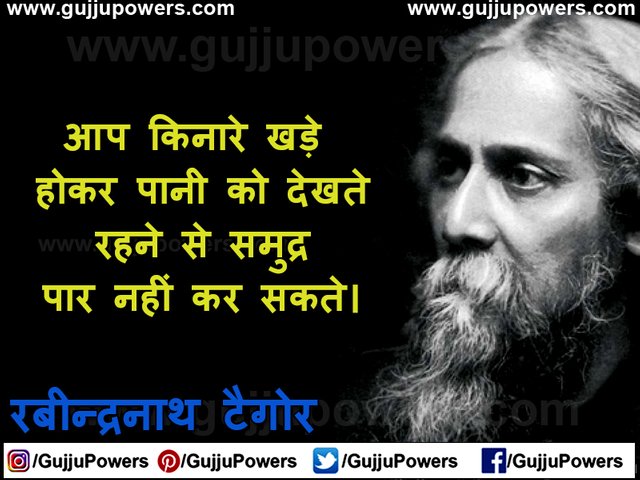Rabindranath Tagore Thoughts & Quotes In Hindi Images | Rabindranath Tagore Thoughts Photos
Rabindranath Tagore Thoughts & Quotes In Hindi Images
Born: 7 May 1861, Kolkata
Death: 7 August 1941, Kolkata
Achievements: Nobel prize for Literature 1913 for the poetry collection Gitanjali, the establishment of Visva-Bharati
Rabindranath Tagore was a world-renowned poet, litterateur, and philosopher. he's the sole Indian litterateur to possess received a Nobel prize. He was also the primary Asian to receive a Nobel prize and therefore the first non-European to receive a Nobel in literature. he's the sole poet within the world whose compositions are the anthem of two countries - the anthem of India 'Jana Gana Mana' and therefore the anthem of Bangladesh 'Amar Sonar Bangla'. Rabindranath Tagore also referred to as Gurudev, gave a replacement direction to Bangla literature and music. He also used a replacement sort of poetry and prose and colloquial language in Bengali literature. This freed Bengali literature from classical Sanskrit influence. Rabindranath Tagore played an influential role in bringing the great of Indian civilization to the West and therefore the good from here. His talent is often gauged from the very fact that he wrote his first poem when he was just 8 years old. At the age of 16, his poems with the nickname 'Bhanusimha' were also published. He was a fierce nationalist and condemned British Raj and demanded the independence of the country. He gave up the knighthood given by the British after the Jallianwala Bagh scandal.
early life
Rabindranath Thakur was born on 7 May 1861 in Addasanko Thakurbari, Kolkata. His father was Devendranath Tagore and mother Sharada Devi. He was the youngest of the thirteen surviving children of his parents. His mother died when he was young, and since his father was often on the journey, he was raised by servants and servants. The Tagore family was at the forefront of the Bengal Renaissance. there have been frequent publications of magazines, theater, Bengali and Western music. Thus his home environment wasn't but any school.
His eldest brother Dwijendranath was a philosopher and poet. His second brother Satyendranath Tagore was the primary Indian to hitch the Indian government officials. Another of his brothers Jyotindranath was a musician and playwright. His sister Swarnakumari Devi was a poetess and novelist. They didn't just like the traditional education system so that they didn't wish to sit in school and study.
He often roamed the family estate together with his relations. His brother Hemendranath wont to teach him. The study also included swimming, workout, judo, and wrestling. aside from this, he also learned drawing, anatomy, history, geography, literature, mathematics, Sanskrit and English. you'll be surprised to understand that he was so disliked with formal education that he visited the Presidency College in Kolkata just one day.
After his Upanayana rites, Ravindranath went on a tour of India together with his father for several months. Before reaching Dalhousie, a tourist destination within the Himalayas, he also visited the family's estate, Shantiniketan and Amritsar. In Dalhousie, he studied history, astronomy, modern science, Sanskrit, biography and discussed the poems of Kalidasa.
After this, Rabindranath returned to Addasano and by 1877 he did a number of his important compositions.
His father Debendranath wanted to form him a barrister, so he sent Ravindranath to England within the year 1878. He enrolled in law college at University College London, but after a while, he gave up his studies and self-studied the works of Shakespeare and a few other writers. He returned to Bengal in 1880 without an academic degree. within the year 1883, he was married to Mrinalini Devi
